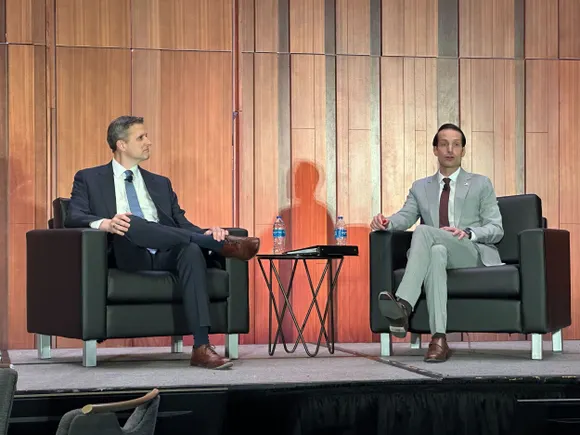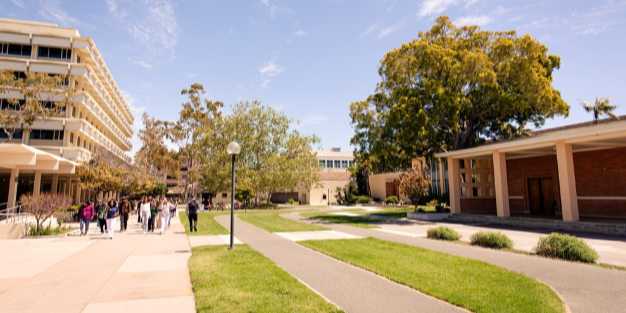Shy students do not come to office hours nor seek the advice of faculty members. In the college classroom, they are quiet and reserved and may appear nervous or lacking confidence. Professors know the keys to success in college and gladly share these with students who ask our advice or visit our office, but assertive outreach is the only way to share critical advice with the shy student. What they do not know can harm them or at least set them back relative to peers, especially worrisome if they are first generation, lower income, or underrepresented minority students. Many outreached hands are needed to support and advise these students who lack the assertiveness to come to us. We must go to them.
In this article, I will review why many students appear shy in the college classroom and the keys to success every college student needs to hear from us in their freshman and sophomore years. Such outreach supports student retention, providing practical advice to help students navigate the college landscape toward successful completion of their degree.
Empathize with Shy Students in the Classroom
Better mentoring begins with empathy, so reflect upon a time when the college classroom was an intimidating place. Shy students are thinking much the same as we did in our first year of college. They can feel insecure and self-conscious, making social comparisons in an environment where grading makes explicit the varying levels of ability. They are inexperienced young adults, unsure of themselves or their competence (Medialle & Usinger, 2019). Consider the psychology of shy students within the unique performance environment of the university.
Class Participation
Shy students are afraid to make mistakes, fearing negative social judgment. Faculty contribute to this anxiety when we grade for class participation in our syllabus, so it is important to balance this practice with gentle encouragement to speak up and engage. Students adopt a risk-avoidance approach to classroom participation and so calculate potential benefits (reward for my effort), odds of success, and risk of not performing well, resulting in their level of effort calculation (B-O-R-E; Hendricson, 2014). Instructors can encourage class participation with verbal praise for positive contributions and affirming words for mistakes. Students’ perceived odds of success and risk can be shaped by our question (e.g., request a recap rather than extrapolation), by our thoughtful lead-up to the question (e.g., Q&A to draw a conclusion), or by offering help when met with silence (“the correct answer starts with a C … anybody?”). Be sensitive to the shy student’s thinking while in the Q&A environment and allow their initial silence to be a moment of calculation before action.
Power Dynamics in the Classroom
Adding to the intimidating nature of the classroom interaction, instructor power is both manifest and latent. We control course grades, write letters of recommendation, and grant access to professional networks. But we can also use latent authority to set a positive classroom tone: Be welcoming to all, learn students’ names and use them, and be happy during class or seem to be (act happy). Avoid teasing, sarcasm, and mockery as forms of humor as these may be poorly received. To shy students, an instructor’s outreached hand reminds them that you are a supportive approachable figure rather than a formidable authority. Be sensitive to the shy student’s perception of the classroom power dynamic and be careful how you wield this power.
Not Knowing the Unwritten Rules of College
Shy students more slowly engage and learn the common behaviors, values, and beliefs gotten only through their interactions with people on campus. Mintz (2024) reviewed college’s “hidden curriculum”, the institutional culture, expected behavior, and unspoken norms that influence academic success. Asking questions in class and help-seeking behavior for writing or tutoring services, although normal for college students, could be a first time experience for some shy students. They may associate stigma or shame with needing help, thinking “I’ll figure it out on my own” or “I should be able to do this”. Chatting informally with professors before or after class can seem awkward, especially if shy students view the professor as too busy, too important, or too different from me to be bothered. Visiting office hours is also common for college students and is an effective icebreaker to view faculty as supportive approachable figures, but it depends fully upon students asserting themselves. While just as important as the academic curriculum, the lessons of college’s hidden curriculum can take longer to reach students who are members of underrepresented groups (Smith, 2015). Not knowing the common rules of conduct can lead to missed opportunities that later become regrets.
Being Different, Blazing New Trails
As implied in several observations above, the new university environment may hold achievement-oriented beliefs, practices, and values that differ dramatically from a new college student’s home and family culture (Pyne & Means, 2013). Self-advocacy can feel selfish, and help-seeking can feel like evidence that college success is beyond one’s current competencies. For the first-generation trailblazers, attending college alone is a major step when they are deviating from family traditions, practices, or expectations (Cerezo, Lyda, Beristianos, Enriquez & Connor, 2013; Martin, Galentino & Townsend, 2014). Be sensitive to the shy student’s imposter syndrome, that intimate feeling that you may not belong here common in first-year students who lack a role model to help them navigate their college years (e.g., Nelson, 2024).
Early Advice that All College Students Need to Hear
Mentors with college experience can empathize with missed opportunities that became regrets. The advice many of us give today likely consists of some of those “what I wish I had known then” lessons. Because shy students do not come to office hours nor seek our advice, there is an urgency for outreach and mentoring. Shy students do not know what they do not know, and what they don’t know now can harm them in the near future. Help shy students, and all students, avoid these four pitfalls.
Protect Your Grade Point Average (GPA)
Students need a high GPA above 3.0 to compete for the better jobs or when applying for post-baccalaureate studies. GPA is a simple numerical indicator of overall abilities compared to other applicants, and it is no surprise that busy employers prefer the demonstrated work ethic of ‘A’ students over that of ‘C’ students. Once broken, a student’s GPA cannot be fixed without retaking courses for a higher grade, a time-consuming and limited option. Grades for courses in the major should be highest, ideally straight As, because this is supposed to be your favorite topic. A GPA below 3.0 weakens your entire application package for post-baccalaureate studies. Those admissions committees also like to see a steady increase in GPA into your junior and senior years, showing improved learning skills. We have seen too many students wait until senior year to decide to pursue graduate or professional school only to discover that a grade point average below 3.0 limits their opportunities.
Get Noticed in the Classroom. Instructors Write References.
Students influence the future content of job references and letters of recommendation by their own actions and words in the presence of faculty letter writers. Too few students are advised to get noticed early in the classroom by their professors, even though most students will need references or recommendations for their first job or for applications to post-baccalaureate study. Faculty write strong letters for students we remember, the ones who stood out in class because they showed enthusiasm and inquisitiveness (Gomez, 2016). Weak letters of recommendation come from professors with little memory of a students’ classroom performance and with no long-term student-faculty relationship. Advise students to participate in class to highlight the academic prowess, personality, and social skills they want future letter writers to remember. Advise students to take only in-person courses with potential future letter writers, because online courses with minimal personal interaction leave a weaker impression on the instructor’s memory. If students sit passively and quietly in class, do not get involved in the major, and do not interact with faculty in memorable ways, it is difficult for faculty to write strong letters of recommendation when called upon. This will be the case even for students who are highly intelligent with good grades, strong test scores, and immense potential.
Refine Essential Skills
Students may not realize the importance of refining essential next-level skills, such as writing scholarly prose, developing spoken communication skills, and mastering the efficient use of library resources. Students need to know that every writing assignment is a chance to improve through thoughtful feedback from an experienced content expert reading your paper. Every oral presentation is your only chance to improve public speaking skills needed in every future career. Every group project is a chance to practice teamwork because future job interviews will ask about experiences where you collaborated effectively with others to achieve a shared goal (Smith, 2023). All students must master searching library resources and consolidating scattered facts into a coherent argument or essay. After the completion of first-year English composition courses, it can be easy for faculty within the major to ignore the importance of essential competencies, but weak communication skills show up later in job applications, in-person interviews, and writing samples.
Find a Mentor to Guide You
Finally, shy students need to know that mentors teach students about college opportunities and how to avoid mistakes. There is no better way to learn about the vast opportunities in a specific professional field than in a one-on-one mentoring relationship with a seasoned professional. Mentors help students find the right degree and ensure that college choices contribute to developing essential career-relevant skills that lead to a thriving career (Pascarella & Terenzini, 2005; Kuh & Hu, 2001). Outreach is especially important for ethnic minority, lower income, and first-generation college students for whom attrition rates are especially worrisome (Keels, 2013; Museus, 2011). For first-generation students in particular, mentors offer the same advice that second-generation college students allegedly benefit from, i.e., the advice college educated parents give to their own college-aged children. Reach out to shy students to help them plan a road map to career success and learn the hidden opportunities available during the college years.
Active Outreach Facilitates Student Development and Supports Retention
Key contributors to college student success include frequency of contact with professors, mentor support, and high expectations (Baker, 2013; Huss, Randall, Patry, Davis & Hansen, 2002; Yorke & Thomas, 2003). Interactions with faculty members are more significant in the early years of college (Schreiner, 2010). It is mentors — faculty, college staff, and even older peers — who shape the student’s developmental process through active relationships that psychologists suggest transform personal identity from high school student to career-ready college graduate (Chickering & Reisser, 1993; Erikson, 1968). College mentors should focus upon career planning in the freshman and sophomore years to facilitate that identity shift needed for undergraduates to envision their future professional selves (Martin, Spolander, Imran & Beulah, 2014; Perez, Cromley & Kaplan, 2013). Interactions with faculty also play a positive role in student persistence (Pascarella & Terenzini, 2005), specifically being supportive of student needs, being approachable, and returning phone calls and emails in a timely fashion (Lundquist, Spalding & Landrum, 2002-2003). Faculty mentors facilitate student development and support retention by encouraging college students to start thinking strategically about their career options and possible futures.
Shy college students may lack the assertiveness to come to us, so we must go to them. Help shy students avoid pitfalls during their college years and teach them the importance of high grades, mentoring relationships, and essential communication skills. More outreached hands in the freshman and sophomore years remind students that faculty are supportive approachable figures rather than formidable authorities. Shy students are inexperienced young adults and need our support to reach their fullest potential.
John Gomez is a professor of psychology in his twenty fifth year of teaching and mentoring undergraduate students at Our Lady of the Lake University, a Hispanic-serving institution located in San Antonio, Texas. His research program and teaching focus upon helping undergraduate students to think strategically about their future professional selves, with special attention to mentees’ development of identity and purpose in life. A research focus has been on ethnic minority, lower income, and first-generation college students, for whom national college retention rates are most troubling. He mentors college students about academic self-preparation, graduate school decision-making, and career planning in psychology and related fields. He also mentors first-time college instructors about classroom management and career readiness. He has delivered peer-reviewed research talks at multiple mentoring conferences, including the Mentoring Institute (University of New Mexico) and the International Mentoring Association (University of Florida).
References
Baker, C. (2013) Social support and success in higher education: The influence of on-campus support. Urban Review, 45(5), 632-650.
Cerezo, A., Lyda, J., Beristianos, M., Enriquez, A. & Connor, M. (2013) Latino men in college: Giving voice to their struggles and triumphs. Psychology of Men and Masculinity, 14(4), 352-362.
Chickering A. & Reisser, L. (1993). Education and identity, 2nd ed. San Francisco: Jossey-Bass.
Erikson, E. (1968). Identity: Youth and crisis. New York, NY: W. W. Norton & Co.
Gomez, J. (2016 Spring). How to properly request letters of recommendation from your professors: Ask, don’t tell. Eye on Psi Chi magazine. American Psychological Association.
Hendricson, W. (2014) Interpreting a Student’s Apparent Lack of Motivation. Academy for Academic Leadership News. 2013; 3(1). DOI: 10.13140/RG.2.1.5097.2644/1
Huss, M., Randall, B., Patry, M., Davis, S. & Hansen, D. (2002). Factors influencing self-rated preparedness for graduate school: A survey of graduate students. Teaching of Psychology, 29(4), 275- 281.
Keels, M. (2013) Getting them enrolled is only half the battle: College success as a function of race or ethnicity, gender, and class, American Journal of Orthopsychiatry, 83(2,3) 310-322.
Kuh, G. & Hu, S. (2001). The effects of student-faculty interactions in the 1990s. Review of Higher Education, 2, 309-332.
Lundquist, C., Spalding, R. & Landrum, E. (2002-2003). College students’ thoughts about leaving the university: The impact of faculty attitudes and behaviors. Journal of College Student Retention, 4, 123- 133.
Martin, K., Galentino, R. & Townsend, L. (2014) Community College Student Success: The role of Motivation and Self-Empowerment, Community College Review, 42(3), 221-241.
Martin, L., Spolander, G., Imran, A. & Beulah, M. (2014) Evolution of student identity: A case of caveat emptor, Journal of Further & Higher Education, 38(2), 200-210.
Medialle, A. & Usinger, J. (2019 March) Engaging quiet students in the college classroom. College Teaching, 67(2):130-137. DOI:10.1080/87567555.2019.1579701.
Mintz, S. (2024 May 16) Life Prep 101. Inside Higher Education online magazine. https://www.insidehighered.com/opinion/blogs/higher-ed-gamma/2024/05/16/how-hidden-curriculum-prepares-students-post-college-life
Museus, S. (2011) Generating ethnic minority student success (GEMS): A qualitative analysis of high-performing institutions, Journal of Diversity in Higher Education, 4(3), 147-162.
Nelson, R. (2024 Winter) Succeeding in college without falling into the imposter phenomenon trap. Eye on Psi Chi magazine. Washington, DC: American Psychological Association.
Pascarella, E. & Terenzini, P. (2005). How college affects students, Vol. 2, A third decade of research. San Francisco, CA: Jossey-Bass.
Pyne, K. & Means, D. (2013) Underrepresented and In/visible: A Hispanic first-generation student’s narratives of college, Journal of Diversity in Higher Education, 6(3), 186-19.
Perez, T., Cromley, J. & Kaplan, A. (2013) The role of identity development, values, and costs in college STEM retention, Journal of Educational Psychology, doi: 10.1037/a0034027.
Schreiner, L. (2010) The critical role of faculty and faculty development in sophomore success. In Hunter, M. S., Tobolowsky, B. F. & Gardner, J. N., (Eds.) Helping sophomores succeed: Understanding and improving the second-year experience. San Francisco, CA: Jossey-Bass.
Smith, A. (2023 April 25) Teamwork is hard work. Here’s how to build the skills to do it well. Forbes online magazine. https://www.forbes.com/sites/annkowalsmith/2023/04/25/teamwork-is-hard-work-heres-how-to-build-the-skills-to-do-it-well/
Smith, B. (2015 March 24) Mentoring at-risk students through the hidden curriculum of higher education. Lexington Books.
Yorke, M. & Thomas, L. (2003). Improving the retention of students from lower socio-economic groups, Journal of Higher Education Policy and Management, 25(1), 63-74.




























